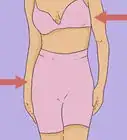This article was co-authored by Christopher Carreiro. Christopher Carreiro is a Certified Personal Trainer and the Founder of Aum Training Center in Boston, Massachusetts. With over 10 years of experience, Chris specializes in helping busy people look and feel years younger. He does so by integrating holistic nutrition and mindfulness into life-changing transformation programs. In addition to being a Precision Nutrition Level 1 Certified Coach, Chris is a Certified Strength and Conditioning Specialist (CSCS). He also has a Master’s degree in Psychology with a specialization in life coaching.
There are 10 references cited in this article, which can be found at the bottom of the page.
This article has been viewed 75,612 times.
As you work toward core fitness, you might notice that your new six-pack abs are a little uneven. If one side of your ab muscles looks bigger than the other, or if your upper abs are more visible than your lower abs, there are steps you can take to adjust the fat and muscles in your abdomen so that the muscles appear more evenly sized. Abs that are visibly staggered, however, are a result of an uncommon genetic pattern that can’t be changed. Either way, you can improve your abdominal strength, make each side even in size, and reveal the beauty in both symmetrical and uneven abs with a handful of fat-adjusting techniques and targeted exercises.
Steps
Working Your Abs Evenly
-
1Test out planks that focus on one side at a time, like side or windmill planks.[1] With enough core strength, it’s possible to switch from straight planks to ones that strengthen one side at a time. Press one forearm side of your body on the ground and lift up so that the side of one foot and one forearm and foot are on the ground and the rest of your body is in the air. Balancing in this position is a great one-sided core exercise.[2]
- You can rest your free hand on your upward-facing hip to help balance.
- Try holding this for a few seconds at first, moving up to 30 seconds or a few minutes as your core strength improves over time.
- A more intense version of the side plank is to “windmill” one side up while in a straight plank, by lifting one side into the air, returning it to the ground, and switching sides.
-
2Do chest presses with one arm to isolate the muscles on either side. To do a one-arm chest press, lift a dumbbell into the air with one arm while laying on a bench with your feet flat on the ground. Be sure to use a lower weight than you would for a normal chest press, as too much weight can cause your arm to give out and fall to one side or the other.[3]
- Start with 3 sets of 5 to 10 reps, with 1 minute long rests in between.
Advertisement -
3Try out a Pallof press or single-arm row to work both sides of your core. Both cable-core or “Pallof presses” and one-arm rows allow you to strengthen one side of your core with a simple pulling motion. Pallof presses involve pulling a tied-off cable toward your middle-chest area with the handle held sideways, while a single-arm row can be done on a rowing machine by pulling the handle toward your body with one arm.[4]
- Try doing 3 sets of 10 to 15 reps, with 1 minute long rests. If you can do more reps with good form, you should do so.
- For these exercises, it’s important to keep your arms fully straight at the extended portion of the motion, without locking your elbows, and then pulling the cable in with a simple bend at the elbow.
-
4Carry a weight in one arm as you walk for a “suitcase carry.” You can use a dumbbell to strengthen one side of your core by holding it in one hand and taking long, slow steps across the gym. As you work up the repetitions and weight of this exercise, you will start to feel a burn in your core.[5]
-
5Add cardio into your routine to get rid of uneven abdominal fat. If your lower abdomen has fat deposits that cover your muscles, while your upper abs are well defined, you can burn the fat with cardio. Fat collects in your lower abdomen naturally, and this area is one of the most resistant to loss of fat, but cardio will help.[6]
- Try adding 20 to 30 minutes of biking, using an elliptical machine, jogging, stair climbs, or swimming laps in a pool to your workout.
-
6Do crunches and sit-ups sparingly to avoid emphasizing your upper abs. If your core routine focuses on crunches, you may end up with strong abs in just the upper region of your abdomen. If you are trying to even out the top and bottom halves of your abs, try replacing crunches with exercises that target just one side, like one-armed planks and chest presses, or pulling exercises like Pallof presses and one-armed rows. [7]
Finding the Cause of Your Uneven Abs
-
1Look in a mirror to see if your abs are staggered. Staggered abdominal muscles will appear mis-aligned, with one side’s visible muscles positioned above the others. In cases like this, where your ab muscles are uneven in their arrangement, there is very little you can do.[8]
- The overall shape and position of muscles, like many other aspects of your body, are determined by your genetic code, and cannot be changed.[9]
- Though it is not particularly common, this genetic pattern is found in people around the world.
-
2Check whether your lower abs seem to be pushed out. If your upper abs seem fine, but your lower abs seem to stick out, you may have an issue with posture or fat distribution. When you notice this in a mirror, turn to the side without changing your posture to see if you are standing up straight, or if your shoulders are hunched.[10]
- If your posture seems fine, you may have uneven fat distribution. Most people have an uneven amount of fat between their upper and lower abdomen, though exercise can help burn the fat.
-
3Conduct a bend-over test to see if you have a curve in your spine. In rare cases, uneven abs are caused by a curved spine or misaligned vertebrae, including cases of scoliosis. One way to check for a curved spine is to bend forward as though you are touching your toes and see if your arms hang at different lengths.[11]
- In an un-curved spine, your arms will hang down to about the same spot.
- If you notice a bend or curve in your spine, you should see a doctor to confirm whether your uneven abs are related and find treatment.
- In addition to being medically necessary, treatment for scoliosis and other spine conditions may correct your uneven abs.
-
4Evaluate your exercise and athletic routines to see if they favor one side. If one side of your ab muscles seems bigger than the other, there is likely a reason for the difference. Not isolating each side in your core workouts and spending years playing a sport that emphasizes one side over the other can cause your muscles to develop unevenly.[12]
- Sports that can lead to this include golf, tennis, badminton, softball, and baseball.
- This can be changed by making adjustments to your exercise routine.
Keeping Your Posture Even
-
1Practice keeping your back straight if you tend to slouch. If you tend to slouch when you sit or walk, spend time consciously working on standing or sitting straighter. Getting into a routine of checking your posture every time you sit down or stand up can give you a chance to correct your posture throughout the day.[13]
- Good standing and sitting posture involves keeping your head up without your neck sticking out, keeping your glutes under your hips, and having your back in a slight, but not exaggerated curve.
-
2Strengthen your back and core muscles to help improve your posture. Poor posture is often caused by weak or uneven back muscles, which end up even weaker as you slouch or stand improperly. Planking, bridges, back extensions, and side leg raises can all help set you up for success as you improve your posture.[14]
- Planking involves holding an elevated, straight position with your toes and forearms or hands resting on the ground.
- Bridges require you to lay on the ground with your knees bent and your feet flat on the floor. Lift your abdomen upward into the air until you form a bridge shape with your body.
- Back extensions are another on-the-floor exercise where you kick your legs into the air and try to hold them up as vertically as possible, keeping your shoulders flush with the ground.
-
3Massage your shoulders to fix tight muscles and unevenness. If you have any knots in your shoulders, massage them with your fingers or a roller. Having tightness in your shoulder muscles, as many lifters and serious gym-goers do, could raise one side of your body more than the other, giving the appearance of lopsided abs. If your spine seems straight but one shoulder looks raised, consider getting a massage or using a back roller to loosen those muscles.[15]
-
4Visit a chiropractor if you are struggling to improve your posture. For many people, poor posture has become so ingrained that they have difficulty trying to correct it on their own. If this is the case for you, consider making an appointment with a chiropractor, who will be able to give advice on how to improve your posture.[16]
- If you would prefer a professional outside of the chiropractic field, you can visit a physical therapist for similar advice.
Expert Q&A
-
QuestionShould I work out my weaker side more than my stronger, more developed side?
 Christopher CarreiroChristopher Carreiro is a Certified Personal Trainer and the Founder of Aum Training Center in Boston, Massachusetts. With over 10 years of experience, Chris specializes in helping busy people look and feel years younger. He does so by integrating holistic nutrition and mindfulness into life-changing transformation programs. In addition to being a Precision Nutrition Level 1 Certified Coach, Chris is a Certified Strength and Conditioning Specialist (CSCS). He also has a Master’s degree in Psychology with a specialization in life coaching.
Christopher CarreiroChristopher Carreiro is a Certified Personal Trainer and the Founder of Aum Training Center in Boston, Massachusetts. With over 10 years of experience, Chris specializes in helping busy people look and feel years younger. He does so by integrating holistic nutrition and mindfulness into life-changing transformation programs. In addition to being a Precision Nutrition Level 1 Certified Coach, Chris is a Certified Strength and Conditioning Specialist (CSCS). He also has a Master’s degree in Psychology with a specialization in life coaching.
Certified Personal Trainer If you have a weaker side, I'd recommend that you do a two-to-one ratio so you're working on the weaker side twice as much as the stronger side.
If you have a weaker side, I'd recommend that you do a two-to-one ratio so you're working on the weaker side twice as much as the stronger side.
References
- ↑ Christopher Carreiro. Certified Personal Trainer. Expert Interview. 2 March 2021.
- ↑ https://www.self.com/story/plank-mistakes-simple-tweaks
- ↑ https://www.stack.com/a/single-arm-training
- ↑ https://www.stack.com/a/single-arm-training
- ↑ https://www.coachmag.co.uk/barbell-exercises/7377/how-to-do-the-landmine-press
- ↑ https://www.health.harvard.edu/staying-healthy/abdominal-fat-and-what-to-do-about-it
- ↑ https://www.menshealth.com/fitness/a19547693/why-abs-look-different/
- ↑ https://www.mensjournal.com/health-fitness/why-are-my-abs-asymmetrical/
- ↑ Christopher Carreiro. Certified Personal Trainer. Expert Interview. 2 March 2021.
- ↑ https://www.nhs.uk/live-well/exercise/common-posture-mistakes-and-fixes/
- ↑ https://www.ncbi.nlm.nih.gov/pmc/articles/PMC4339162/
- ↑ https://www.mensjournal.com/health-fitness/why-are-my-abs-asymmetrical/
- ↑ https://www.nhs.uk/live-well/exercise/common-posture-mistakes-and-fixes/
- ↑ https://www.nhs.uk/live-well/exercise/common-posture-mistakes-and-fixes/
- ↑ https://www.active.com/fitness/articles/4-ways-to-loosen-tight-trapezius-muscles
- ↑ https://www.menshealth.com/fitness/a19547693/why-abs-look-different/
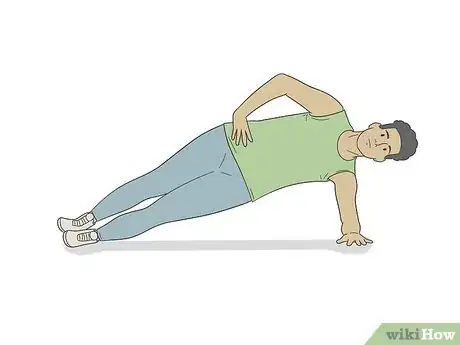

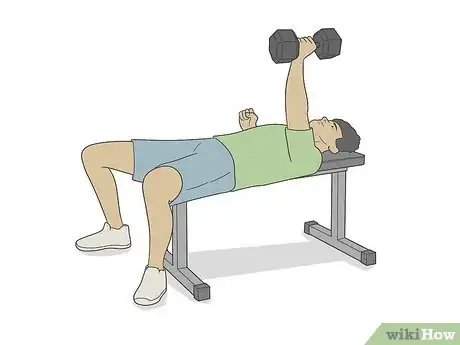
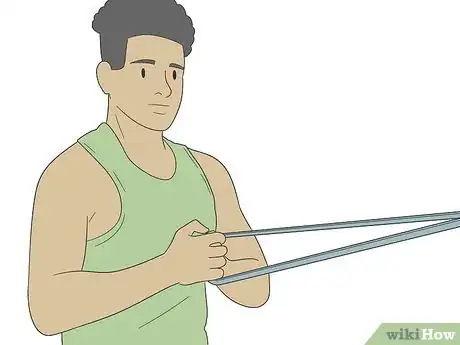

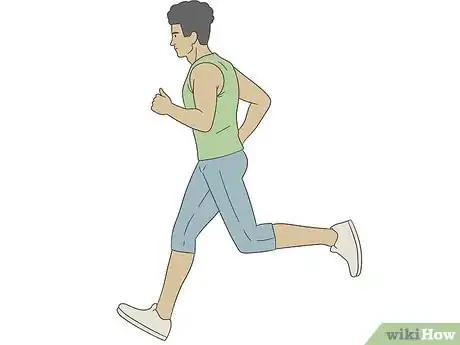
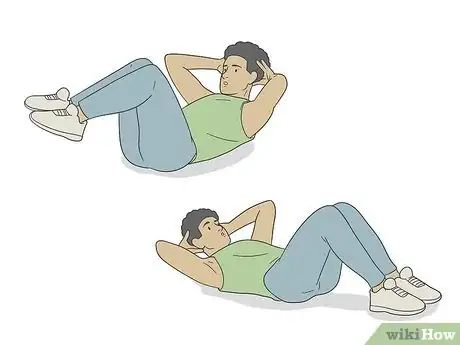

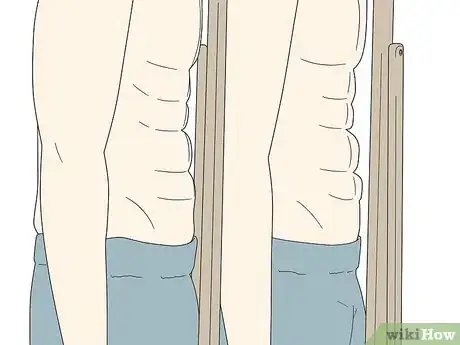
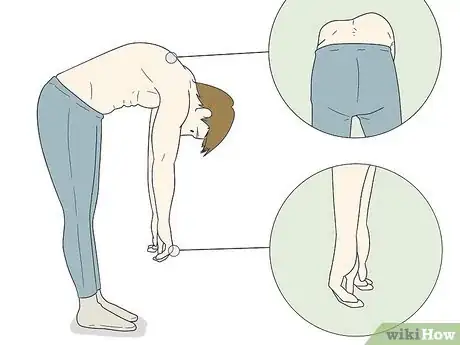

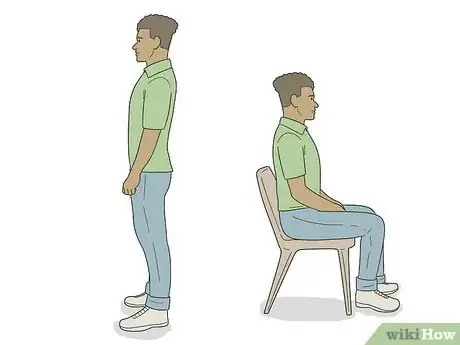



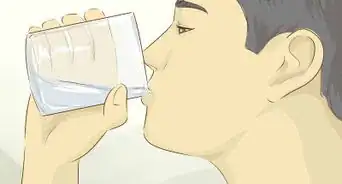
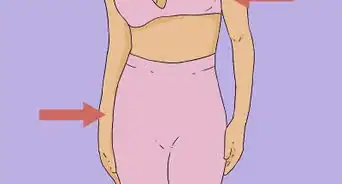
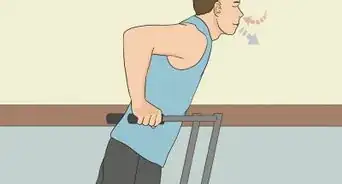
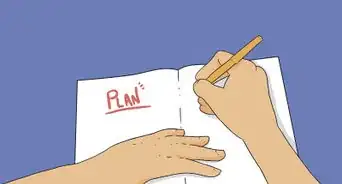
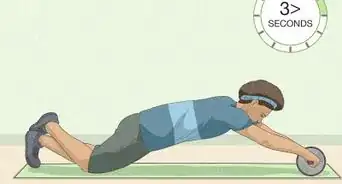

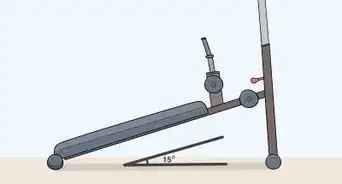
-Step-9-Version-12.webp)









